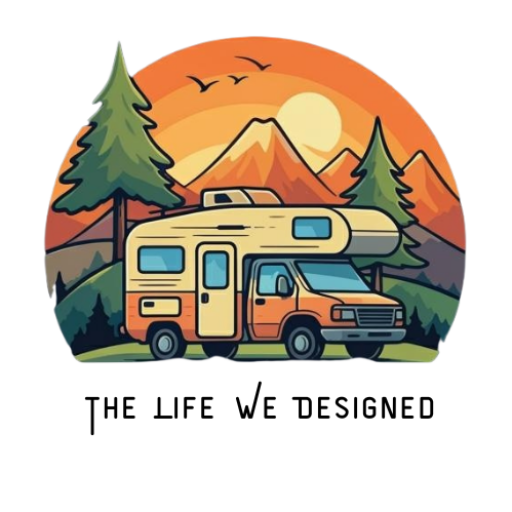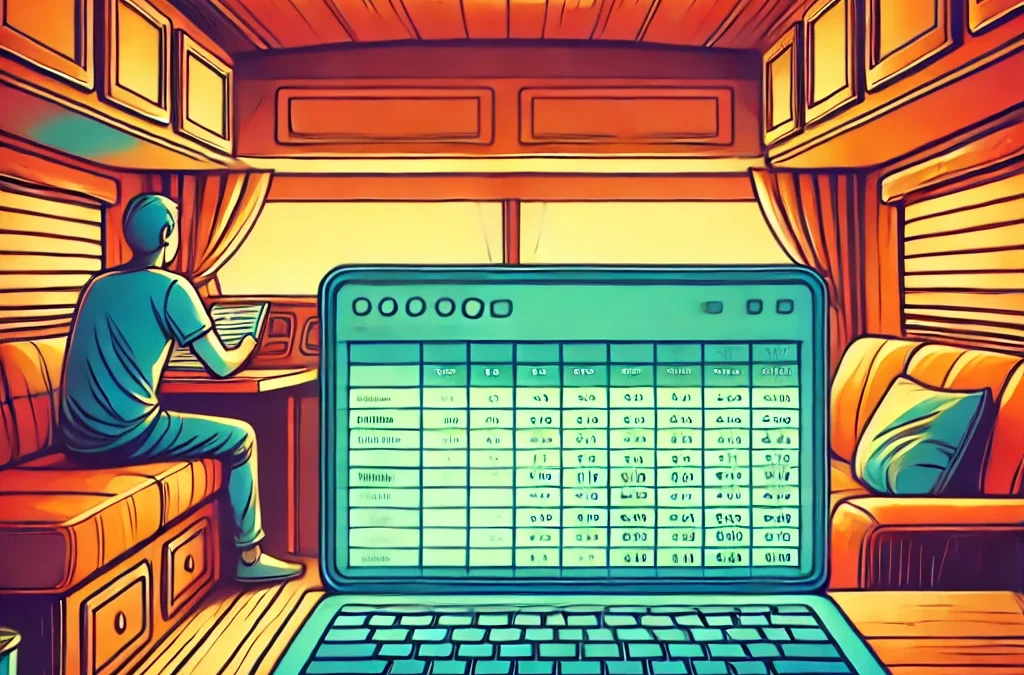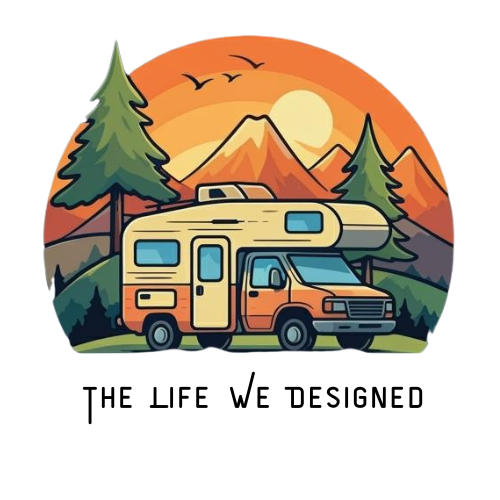Contents
Part 4 – Introduction to the Series
Transitioning to the full-time RV lifestyle is an exciting journey filled with freedom, adventure, and the opportunity to design your life on your terms. But before you hit the road, you must prepare mentally, practically, and financially.
In this series, “RV Life Without the RV: Your Step-by-Step Guide to Preparing for Full Time RV Living,” we’ve already explored whether the RV lifestyle is right for you (Part 1), the mindset shifts needed to break free from the 9-5 grind (Part 2), and practical ways to explore RV living before owning an RV (Part 3).
Now, in Part 4, we’ll tackle one of the most crucial aspects of preparing for full-time RV life: financial preparation. From budgeting and saving to exploring income opportunities, this article will help you build a solid financial foundation for your journey.
Financial Preparation for Full-Time RV Life
One of the biggest concerns for aspiring full-time RVers is how to afford the lifestyle. While RV living can be more affordable than maintaining a traditional home, it does come with its own set of expenses. The good news? With proper planning and preparation, you can make the financial side of RV life manageable and sustainable.
Budgeting for the RV Lifestyle
To avoid financial stress on the road, it’s important to create a realistic budget that accounts for all the costs of RV living. This list will vary depending on your desired lifestyle.
Common Expenses for Full-Time RVers:
- RV Costs: Monthly payments (if financed), maintenance, repairs, and insurance. If you are looking at motorhomes, vans, or a fifth wheel, you will have regular oil changes and tire rotations. Getting in with a national chain is important. We bought tires at Costco (auto and truck) and Discount Tires (motorhome). There are a few chains that can be found near places you choose to stay. Oil changes on a motorhome require a shop that can handle large vehicles, like a car dealer, and is not a national chain.
- Fuel: Gas or diesel costs can vary depending on how far and how frequently you travel. It can pay off to have gas cards that give you a discount, or national grocery chains that give you points off for fuel. Chains like Kroger are in most states (under a dozen or more names).
- Campgrounds and Parking: Fees for RV parks, campgrounds, and boondocking permits. There are also membership options for camping that can save you thousands! Send me a message and I can share some of those with you. For example, we have one that only costs us $145 a month and we could stay 365 days a year at their campgrounds. That would not cover two days in most campgrounds.
- Utilities: Electricity, water, and propane, plus internet or cell service for staying connected.
- Food and Supplies: Groceries, dining out, and basic household items. Some of us like to eat out more and enjoy the food scene. Our budget is a bit higher for dining out.
- Miscellaneous: Laundry, health insurance, mail forwarding, and entertainment. Don’t forget the fun stuff!
Tips for Building Your Budget:
- Review your current spending to identify areas where you can cut back.
- Use online tools like RV cost calculators to estimate monthly expenses.
- Build an emergency fund to cover unexpected costs (e.g., breakdowns, medical expenses).
Actionable Tip: Start tracking your current expenses today. Use this information to create a mock budget for RV living and identify areas where you can save.
Saving for the RV Life Transition
Before hitting the road, it’s a good idea to build up your savings to cover startup costs and provide a financial safety net. There is already the stress of all the changes you are making, so let’s eliminate financial worries.
What to Save For:
- RV Purchase or Down Payment: Whether you’re buying new or used, factor in the upfront cost.
- Startup Costs: RV gear like sewer hoses, surge protectors, and kitchen essentials.
- Emergency Fund: Aim for 3–6 months of living expenses to cover unexpected situations.
Ways to Save Money:
- Sell unused belongings as part of your downsizing process.
- Cut non-essential expenses like subscriptions or memberships.
- Take on a side hustle or freelance work to increase your income.
Actionable Tip: Set a monthly savings goal and open a separate savings account specifically for your RV life transition.
Exploring Income Options for the Road
Many full time RVers fund their lifestyle through remote work, freelancing, or seasonal jobs. If you’re leaving a traditional job, it’s important to plan how you’ll earn income on the road. If you want to approach your employer about working remotely, you may find our article helpful. Getting Permission to Work Remotely from your RV.
Income Ideas for RVers:
- Remote Work: Many jobs can now be done remotely, including writing, graphic design, programming, and customer support.
- Freelancing: Offer your skills on platforms like Upwork, Fiverr, or Toptal.
- Digital Entrepreneurship: Start an online business, blog, or YouTube channel around your skills and knowledge.
- Seasonal and Campground Work: Many RVers work at national parks, campgrounds, or festivals. You may use a site such as Workamper that has multiple options, or go directly to the larger RV Park groups like KOA.
- Teaching or Coaching: Teach online classes or coach others in your area of expertise.
Tips for Finding Work:
- Assess your current skills and think about how they can translate to remote or freelance opportunities.
- Research job boards like We Work Remotely, FlexJobs, or Remote.co.
- Consider taking online courses to learn new skills that support remote work.
Actionable Tip: Make a list of your skills and interests. Research at least one remote work or freelancing opportunity that aligns with your strengths.
Reducing Debt Before Hitting the Road
Carrying significant debt can make full time RV living stressful. If possible, work on reducing your debt before transitioning to life on the road. This gives you added freedom.
Tips for Paying Down Debt:
- Use the debt snowball method (pay off smaller debts first) or the debt avalanche method (focus on higher-interest debts first).
- Consolidate or refinance loans to lower interest rates.
- Allocate extra income (from side hustles or selling belongings) toward debt payments.
Actionable Tip: Review your current debts and create a repayment plan. Focus on paying off high-interest debt first.
Planning for the Long Term
While RV life offers incredible freedom, it’s important to plan for the future. Consider:
- Retirement Savings: Assuming you are not yet retired, continue contributing to your retirement accounts, even on the road.
- Health Insurance: Research your options for health coverage as a full time RVer. Find a plan that covers you in multiple states or you may be stuck paying out of network pricing. We are not always in our home state when emergencies arise.
- Taxes: Understand how taxes work if you’re earning income on the road. There are three cities that allow you to set up a domicile. They also have the benefit of no income tax if you are still working.
Actionable Tip: Schedule a meeting with a financial advisor to discuss your long-term financial goals and how they align with RV living. Don’t be surprised if you are the first one to talk to them about this lifestyle change!
Closing: Building a Solid Foundation
Financial preparation is one of the most important steps in transitioning to full-time RV living. By creating a budget, building savings, exploring income opportunities, and reducing debt, you’ll set yourself up for success on the road.
In the next article, “Downsizing for the RV Lifestyle: Simplify Your Life,” we’ll explore how to declutter, let go of excess belongings, and prepare for life in a smaller space.
Stay tuned and take the next step toward your RV dream today!



